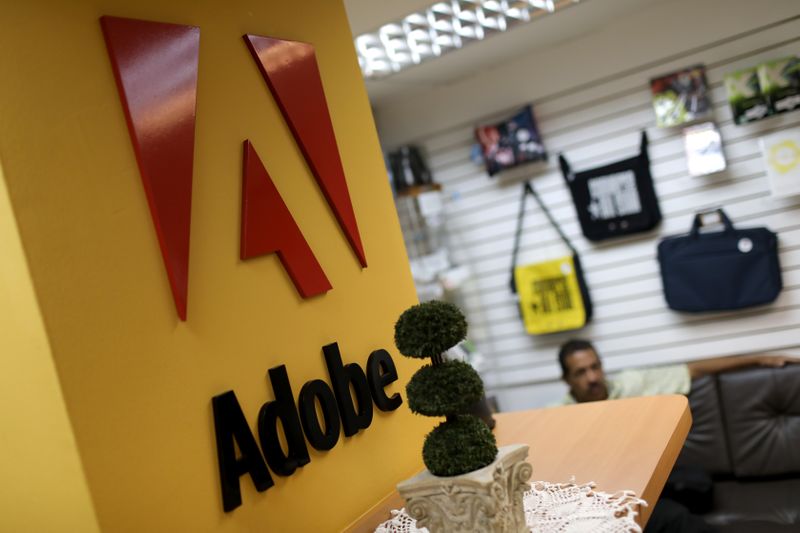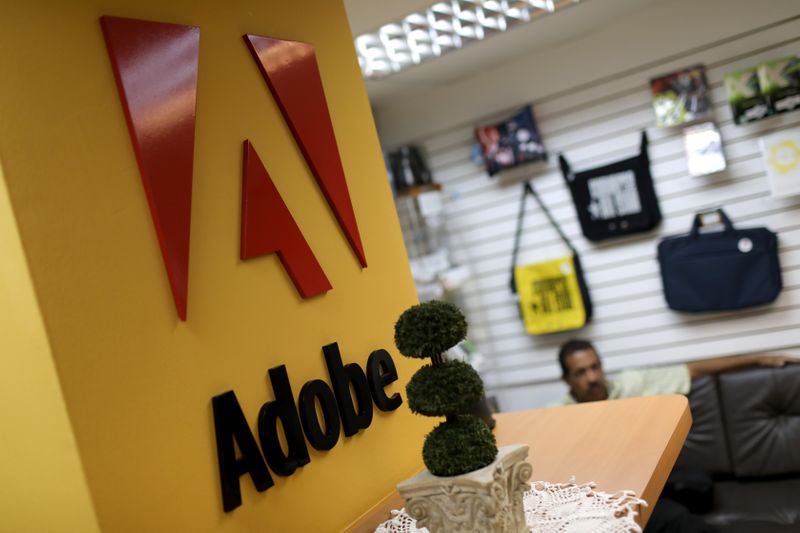
Investing.com – Adobe (NASDAQ:ADBE) has yet to show the positive financial impact of its generative machine-learning text-to-image technology despite the software group backing the model’s potential, according to analysts at Deutsche Bank (ETR:DBKGn).
In a note to clients downgrading their rating of the stock to “hold” from “buy”, the analysts led by Brad Zelnick said they expect movement in Adobe’s shares to be “range-bound” until the company “displays more tangible evidence” of monetization of its artificial intelligence capabilities.
Adobe’s annual net new annual recurring revenue, a measure of revenue generated from new customer acquisitions minus sales lost to churn, decelerated for a third straight year on a dollar basis, the analysts noted. They added that Wall Street estimates are embedding a further slowdown in the current fiscal year.
The analysts said they were subsequently “moving to the sidelines” on the stock, arguing that although they believe Adobe will eventually be a “winner” in the race to monetize so-called generative artificial intelligence, “it will take some time for this to become obvious in the company’s disclosure and/or financials.”
The comments come after the Photoshop maker unveiled a full-year revenue forecast in December of between $23.30 billion and $23.55 billion, missing the average analyst estimate of $23.78 billion, according to LSEG data cited by Reuters.
Several brokerages slashed their price targets for Adobe’s shares following the announcement, even though the firm’s management said it planned to see solid growth in the second half of the year. Adobe has been banking on heavy investments in AI-enhanced video- and image-generation tools such as its Firefly offering to offset burgeoning competition from startups like Stability AI, Midjourney, and OpenAI’s Sora.
Shares in Adobe fell sharply in the wake of the disappointing revenue forecast, and have now slipped by more than 27% over the past one-year period.

